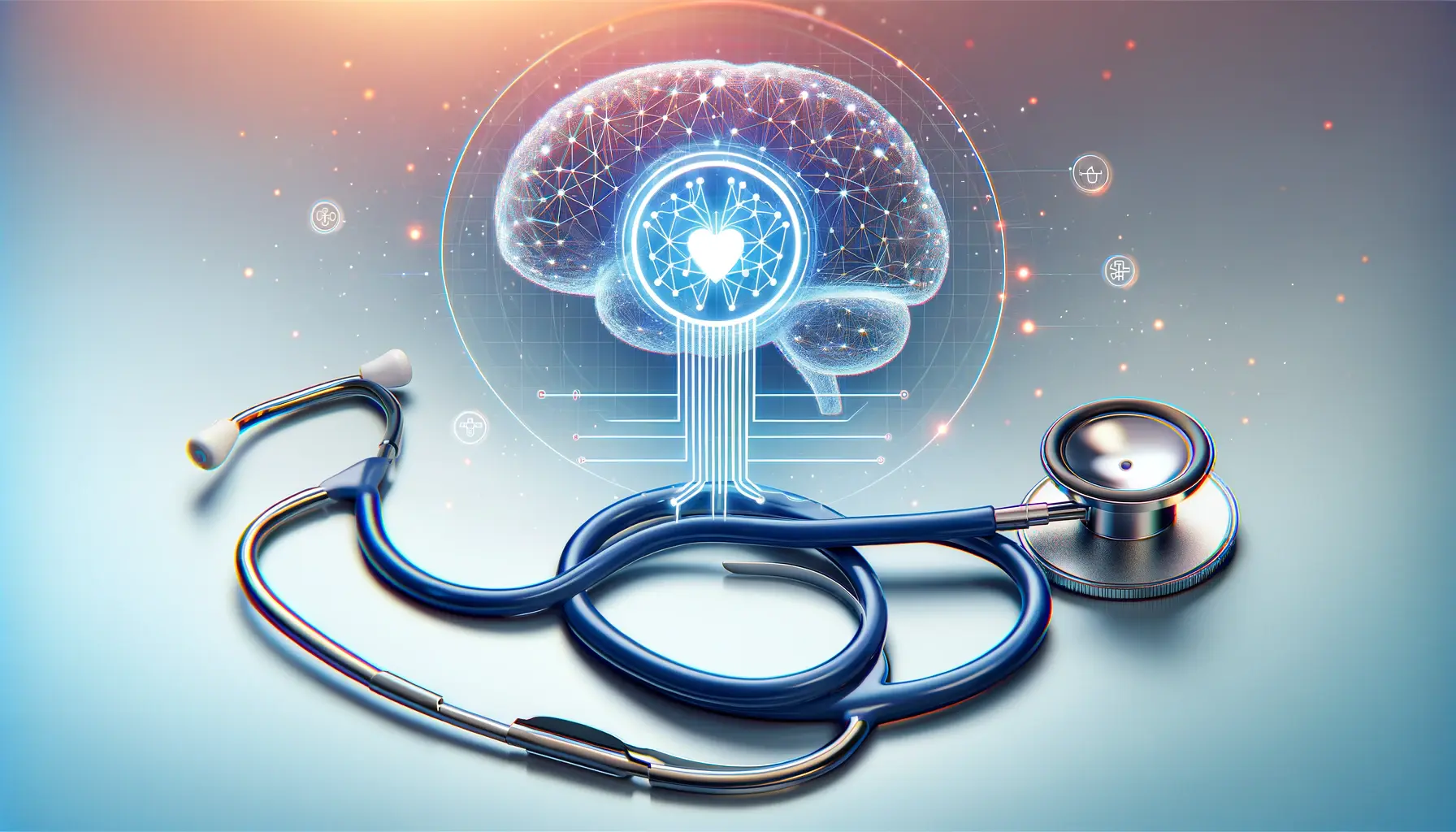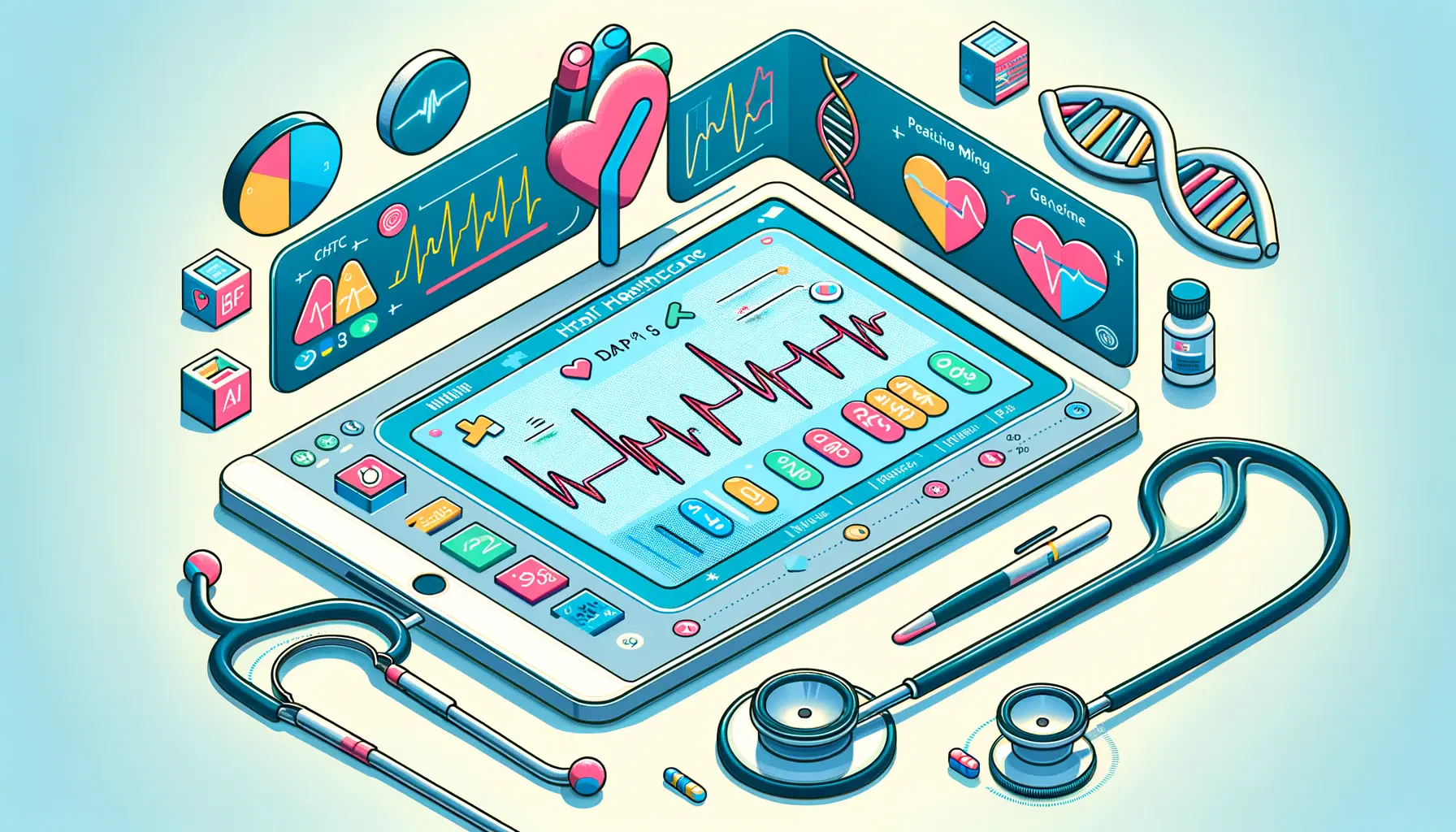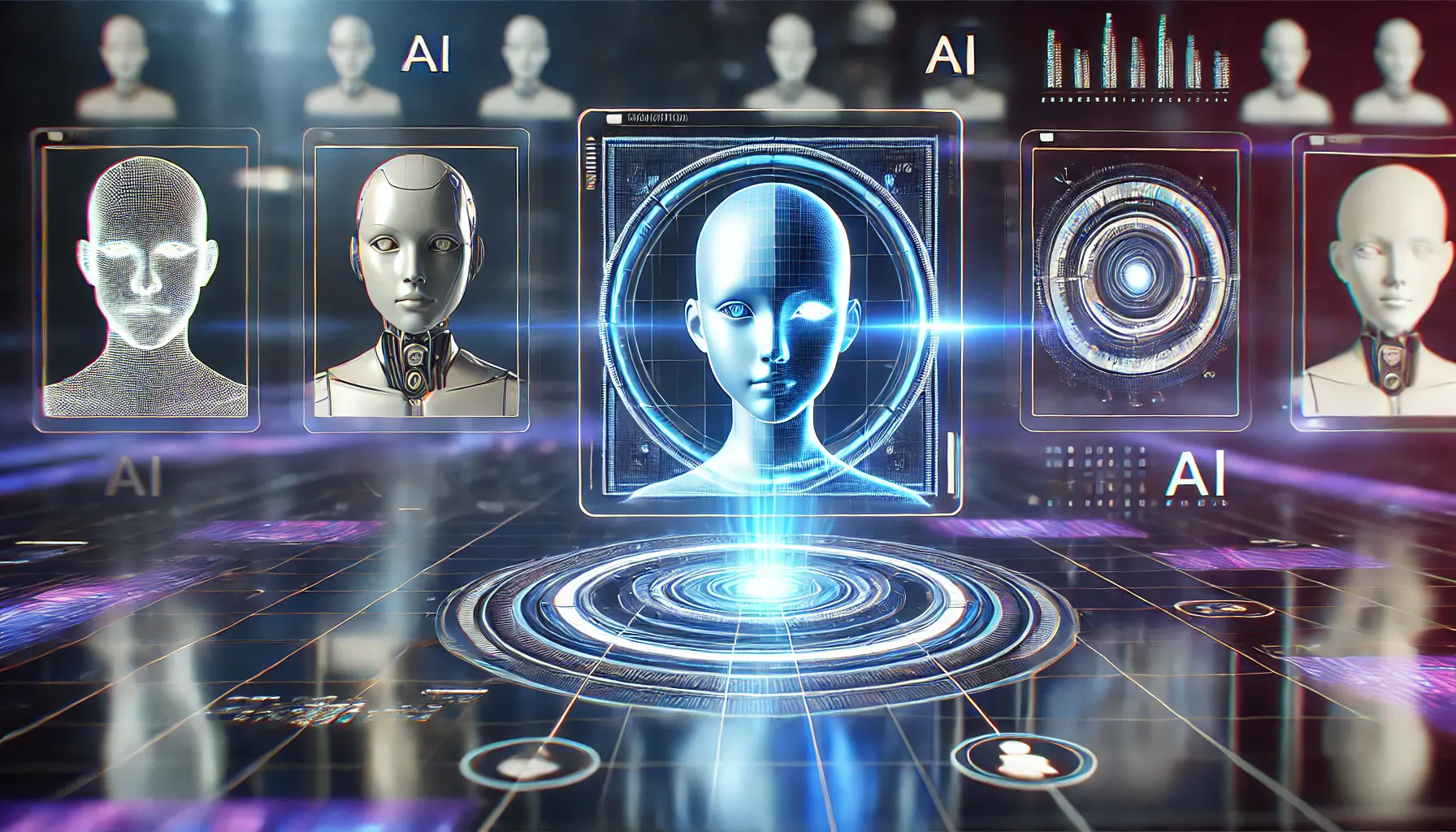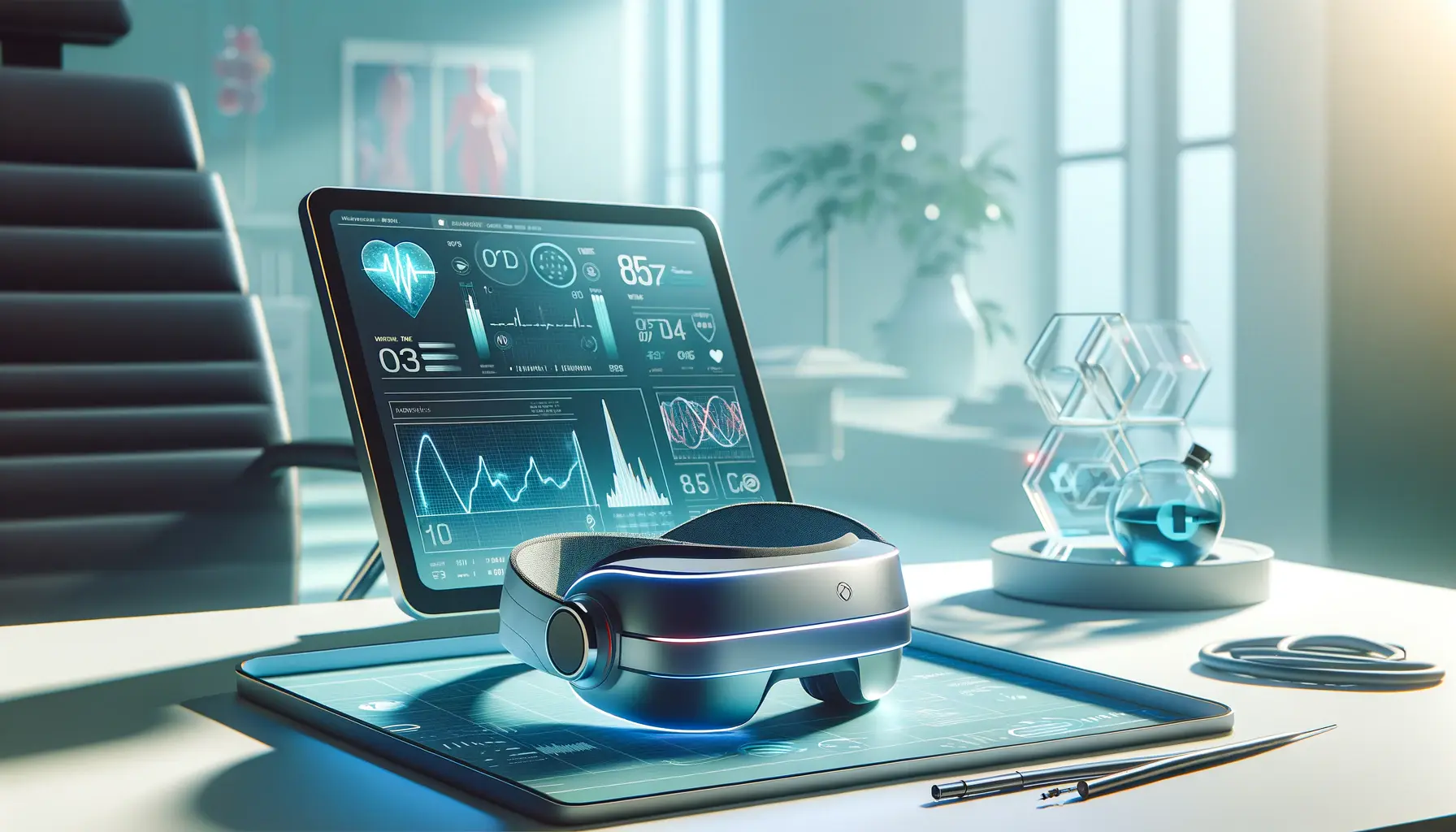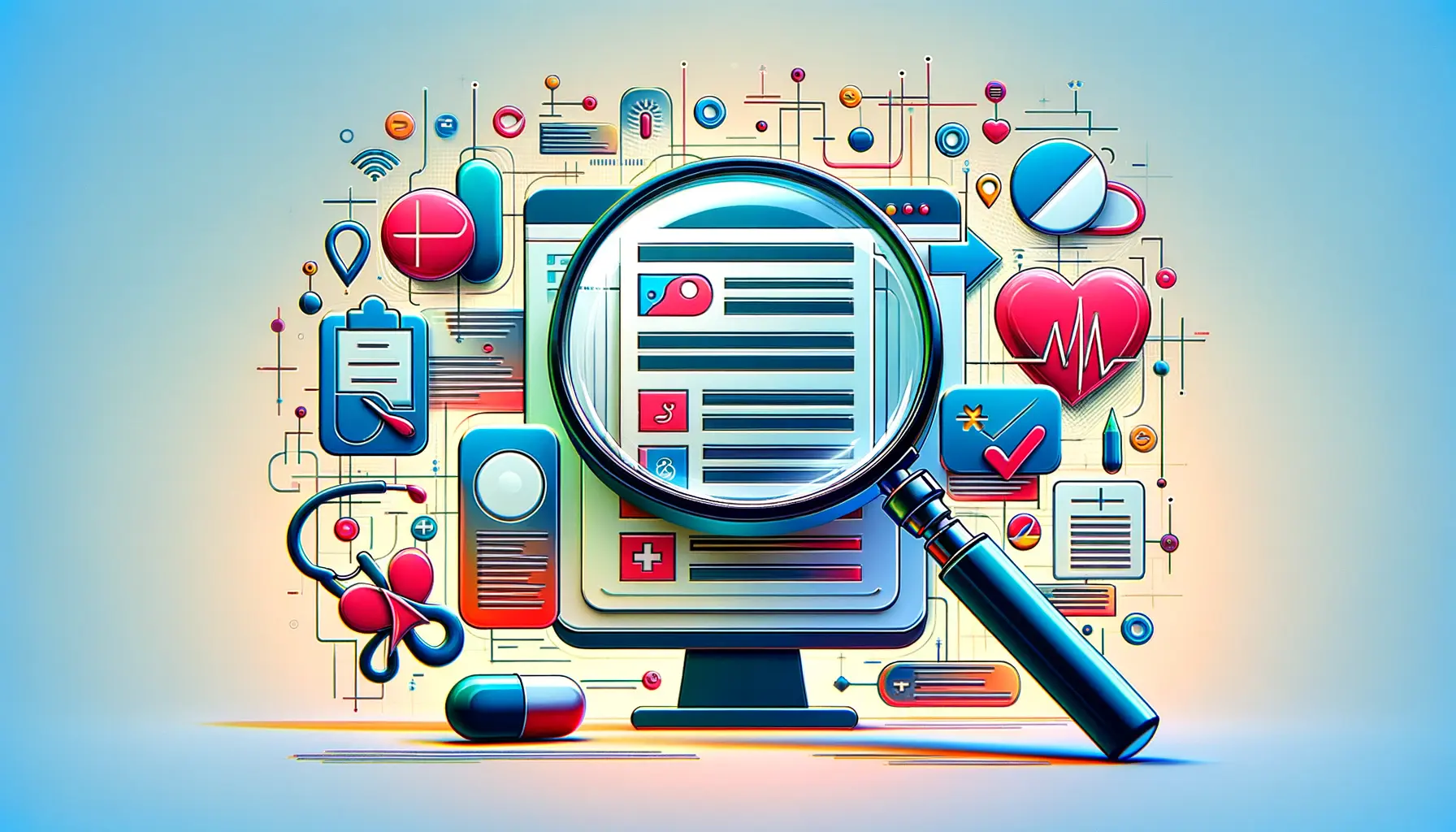The integration of artificial intelligence (AI) into healthcare has been a transformative force, reshaping how we approach diagnostics, treatment planning, patient care, and research.
Among the vanguard of this technological revolution is Claude AI, a sophisticated AI model that has shown remarkable potential in enhancing healthcare services and outcomes.
This article delves into the multifaceted applications of Claude AI within the healthcare sector, illustrating its impact on both clinical and administrative processes.
As healthcare systems worldwide grapple with increasing demands, limited resources, and the ever-present quest for improvement in patient outcomes, the advent of AI technologies like Claude AI offers a beacon of hope.
By harnessing the power of Claude AI, healthcare professionals can unlock new insights from medical data, streamline operations, and deliver personalized patient care with unprecedented precision.
- Revolutionizing Patient Diagnosis and Treatment
- Optimizing Hospital Operations and Patient Care
- Advancing Medical Research and Drug Development
- Facilitating Remote Patient Monitoring and Telehealth
- Improving Healthcare Data Management and Security
- Empowering Healthcare Education and Training
- Challenges and Ethical Considerations in AI Healthcare
- Embracing the Future: Claude AI’s Role in Transforming Healthcare
- Claude AI in Healthcare: Frequently Asked Questions
Revolutionizing Patient Diagnosis and Treatment
Enhancing Diagnostic Accuracy
The application of Claude AI in diagnostics represents a significant leap forward in identifying and understanding various medical conditions.
By analyzing vast datasets of patient records, lab results, and imaging studies, Claude AI can detect patterns and anomalies that may elude human observation.
This capability not only increases diagnostic accuracy but also significantly reduces the time taken to arrive at a diagnosis, enabling faster initiation of treatment.
Claude AI’s deep learning algorithms have been particularly effective in radiology, where they assist in interpreting X-rays, MRIs, and CT scans, identifying signs of diseases such as cancer, pneumonia, and fractures with high precision.
Personalizing Treatment Plans
Personalized medicine, tailored to the individual characteristics of each patient, is another area where Claude AI shines.
By integrating and analyzing information from genetic tests, medical histories, and ongoing health data, Claude AI can help clinicians develop customized treatment strategies.
This approach not only improves the efficacy of treatments but also minimizes adverse reactions, ensuring that patients receive the most appropriate care for their specific conditions.
Moreover, Claude AI’s predictive models can forecast patient responses to various treatment modalities, guiding doctors in choosing the most effective interventions.
This predictive capability is invaluable in fields like oncology, where determining the optimal treatment plan can significantly affect patient survival rates.
Streamlining Clinical Trials
Clinical trials are the backbone of medical research, providing the necessary validation for new treatments and drugs.
Claude AI can transform this critical area by optimizing trial design, participant selection, and data analysis.
By identifying the most suitable candidates for a trial based on genetic markers and health profiles, Claude AI ensures that the research is as effective and efficient as possible, accelerating the path from discovery to deployment of new medical solutions.
In data analysis, Claude AI can sift through the immense volumes of information generated during trials, identifying key outcomes and insights more rapidly and accurately than traditional methods.
This not only speeds up the research process but also enhances the reliability of the results, paving the way for breakthroughs in treatment and medication.
Optimizing Hospital Operations and Patient Care
The deployment of Claude AI extends beyond diagnostics and treatment, offering significant advantages in the optimization of hospital operations and the enhancement of patient care.
By automating routine tasks and analyzing operational data, Claude AI enables healthcare facilities to improve efficiency, reduce costs, and allocate resources more effectively.
One of the key areas where Claude AI makes a difference is in patient flow management.
Through the analysis of admission rates, bed availability, and patient care requirements, Claude AI can predict peak times and suggest optimal staffing levels.
This not only ensures that patients receive timely care but also helps in managing the workload of healthcare professionals, contributing to better overall care quality.
- Inventory Management: Claude AI’s predictive analytics can forecast the demand for medical supplies and medications, reducing waste and ensuring that essential items are always in stock. This is particularly crucial in emergency departments and intensive care units, where the availability of supplies can directly impact patient outcomes.
- Preventive Maintenance: By analyzing data from medical equipment, Claude AI can predict when machines are likely to fail or require maintenance, scheduling interventions proactively to avoid disruptions in patient care.
Improving Patient Engagement and Satisfaction
Enhancing the patient experience is another area where Claude AI has shown great potential.
By facilitating personalized communication and providing support through AI-powered chatbots and virtual assistants, healthcare providers can offer a more engaging and supportive environment for patients.
These technologies can answer patient queries, provide health tips, and remind patients about medication schedules, significantly improving their engagement and satisfaction with the healthcare system.
- Appointment Scheduling: Claude AI can streamline the appointment booking process, offering patients convenient options to schedule their visits and reducing wait times.
- Feedback Analysis: By analyzing patient feedback and social media mentions, Claude AI can identify areas for improvement, helping healthcare providers to enhance service quality continuously.
The integration of Claude AI into hospital operations and patient care not only streamlines administrative tasks but also fosters a more patient-centered approach to healthcare.
This dual impact of operational efficiency and enhanced patient satisfaction underscores the transformative potential of AI in the healthcare sector.
Advancing Medical Research and Drug Development
The application of Claude AI in medical research and drug development heralds a new era of innovation, significantly accelerating the discovery process and enhancing the precision of research outcomes.
By analyzing complex datasets and identifying patterns that may not be visible to human researchers, Claude AI can uncover new insights into diseases, leading to the development of novel therapies and treatments.
In the realm of drug discovery, Claude AI’s ability to process and analyze vast amounts of biological and chemical data can dramatically reduce the time and cost associated with developing new medications.
This is achieved through several key applications:
- Target Identification: Claude AI algorithms can sift through genetic, proteomic, and metabolomic data to identify potential targets for therapeutic intervention, streamlining the initial phase of drug discovery.
- Compound Screening: By simulating the interactions between millions of chemical compounds and biological targets, Claude AI can predict the efficacy and safety of potential drug candidates, prioritizing those with the best therapeutic potential.
- Optimization of Drug Formulations: Claude AI can assist in the optimization of drug formulations, ensuring maximum efficacy and minimal side effects, by analyzing data from preclinical and clinical trials.
Enhancing Clinical Trials
Claude AI’s impact extends to the design and execution of clinical trials, where its predictive models can improve patient selection, trial monitoring, and data analysis.
This not only ensures that trials are more efficient but also increases their success rates by identifying the most relevant endpoints and patient populations.
- Patient Recruitment: By analyzing patient data, Claude AI can identify individuals who match the criteria for a clinical trial, speeding up the recruitment process and ensuring a diverse participant pool.
- Real-time Monitoring: Claude AI can monitor trial data in real time, identifying adverse reactions or significant outcomes early in the process. This allows for timely adjustments to trial protocols, enhancing patient safety and the reliability of trial results.
- Data Analysis: The ability of Claude AI to analyze large datasets from clinical trials enables researchers to draw more accurate conclusions, identify trends, and make data-driven decisions about the development of new treatments.
The integration of Claude AI into medical research and drug development not only accelerates the pace of discovery but also opens up new possibilities for personalized medicine, where treatments can be tailored to the genetic makeup of individual patients.
This represents a significant shift in how we approach the treatment of diseases, promising more effective therapies with fewer side effects.
Facilitating Remote Patient Monitoring and Telehealth
The rise of telehealth and remote patient monitoring has been one of the most significant healthcare trends in recent years, a movement further accelerated by the global pandemic.
Claude AI plays a pivotal role in this domain, offering innovative solutions that enhance patient care outside traditional healthcare settings.
By leveraging AI, healthcare providers can offer continuous, real-time health monitoring and personalized care, regardless of the patient’s location.
Remote patient monitoring, powered by Claude AI, utilizes wearable devices and home monitoring equipment to collect health data such as heart rate, blood pressure, glucose levels, and more.
This data is then analyzed to detect anomalies, predict potential health issues, and provide insights into the patient’s health status.
This proactive approach to healthcare can significantly improve patient outcomes by enabling early intervention and preventing complications.
- Wearable Technology Integration: Claude AI integrates with wearable health devices, analyzing the data they collect to provide actionable health insights and alerts.
- Personalized Health Recommendations: Based on the continuous analysis of health data, Claude AI can offer personalized recommendations for lifestyle adjustments, medication adherence, and when to seek medical attention.
Enhancing Telehealth Services
Telehealth services, which allow patients to consult with healthcare professionals via digital platforms, have become increasingly important.
Claude AI enhances these services by facilitating more efficient patient-provider interactions, improving access to care, and personalizing the telehealth experience.
- AI-Powered Triage Systems: Claude AI can assess patient symptoms and health queries through chatbots or virtual assistants, directing them to the appropriate care provider or offering self-care advice.
- Virtual Health Assistants: These AI-driven assistants can provide medication reminders, health tips, and support for chronic disease management, enriching the telehealth experience.
The integration of Claude AI into remote patient monitoring and telehealth represents a significant advancement in making healthcare more accessible, efficient, and personalized.
By analyzing health data in real time, Claude AI enables a proactive approach to patient care, potentially transforming the healthcare landscape by reducing hospital readmissions, improving chronic disease management, and enhancing patient engagement and satisfaction.
Improving Healthcare Data Management and Security
In the digital age, the management and security of healthcare data have become paramount concerns for healthcare providers.
The vast amounts of sensitive patient information collected and stored by healthcare systems present significant challenges in terms of data organization, accessibility, and protection against breaches.
Claude AI emerges as a critical tool in addressing these challenges, offering sophisticated solutions for enhancing data management practices and bolstering security measures.
By employing advanced algorithms and machine learning techniques, Claude AI can analyze and organize healthcare data, making it more accessible to healthcare providers while ensuring compliance with privacy regulations.
This not only improves the efficiency of healthcare services but also plays a crucial role in protecting patient privacy and sensitive health information.
- Data Organization and Accessibility: Claude AI can categorize and tag vast amounts of healthcare data, making it easily searchable and accessible to authorized personnel. This improves clinical decision-making by ensuring that critical patient information is readily available when needed.
- Compliance and Privacy: Claude AI helps healthcare organizations comply with stringent data protection regulations, such as HIPAA in the United States, by automating the monitoring and management of patient data, ensuring that privacy controls are consistently applied.
Enhancing Cybersecurity Measures
As healthcare systems become increasingly reliant on digital technologies, the threat of cyberattacks and data breaches has escalated.
Claude AI plays a vital role in enhancing cybersecurity measures, employing predictive analytics to identify potential threats and vulnerabilities before they can be exploited.
- Anomaly Detection: Claude AI systems can monitor network activity for unusual patterns that may indicate a cyberattack, allowing for rapid response to potential threats.
- Risk Assessment: By analyzing historical data on security incidents and current trends in cyber threats, Claude AI can assess the risk levels of different parts of a healthcare organization’s IT infrastructure, guiding the allocation of cybersecurity resources.
The application of Claude AI in healthcare data management and security not only streamlines the handling of vast amounts of health information but also significantly enhances the protection of this data against unauthorized access and cyber threats.
This dual benefit underscores the importance of AI in building more resilient and efficient healthcare systems.
Empowering Healthcare Education and Training
The education and training of healthcare professionals are critical components of a robust healthcare system.
With the landscape of medicine constantly evolving, there’s a pressing need for educational tools that can adapt to the rapid pace of change and provide learners with interactive, personalized learning experiences.
Claude AI stands at the forefront of this educational revolution, offering innovative solutions that transform how healthcare education and training are delivered.
Through the application of AI, medical students, nurses, and practicing physicians can access a wealth of knowledge tailored to their learning pace, style, and objectives.
Claude AI facilitates a more engaging and effective learning environment by providing real-time feedback, personalized learning paths, and access to a vast database of medical knowledge.
- Customized Learning Experiences: Claude AI can analyze the learning habits and performance of students to create personalized education plans, focusing on areas that require improvement and adapting the difficulty level to the learner’s progress.
- Simulation and Virtual Reality: By integrating with simulation and virtual reality technologies, Claude AI offers hands-on learning experiences that mimic real-life medical scenarios, allowing learners to practice procedures and decision-making in a risk-free environment.
Supporting Continuous Professional Development
Beyond initial education, Claude AI plays a pivotal role in the continuous professional development of healthcare providers.
In an industry where new treatments and technologies are constantly introduced, the ability to stay current is indispensable.
Claude AI supports lifelong learning by offering up-to-date information, research findings, and clinical guidelines through accessible digital platforms.
- Just-in-Time Learning: Claude AI can deliver targeted educational content to healthcare professionals just when they need it, such as updates on the latest treatment protocols or information on emerging diseases.
- Performance Monitoring: AI-driven analytics can monitor the performance of healthcare professionals over time, identifying areas for further training and suggesting educational resources to bridge knowledge gaps.
The integration of Claude AI into healthcare education and training heralds a new era of efficiency and personalization in medical learning.
By providing dynamic, interactive learning experiences and supporting the continuous professional development of healthcare workers, Claude AI ensures that the healthcare workforce is well-equipped to meet the challenges of modern medicine.
Challenges and Ethical Considerations in AI Healthcare
While the integration of Claude AI into healthcare offers numerous benefits, it also presents challenges and ethical considerations that must be addressed.
As healthcare systems increasingly rely on AI for decision-making and patient care, the implications for privacy, autonomy, and equity come to the forefront.
Navigating these challenges requires a careful balance between leveraging AI’s potential and safeguarding the rights and well-being of patients.
The ethical deployment of AI in healthcare hinges on transparency, accountability, and inclusivity.
Ensuring that AI systems like Claude AI are developed and used in ways that respect patient privacy, consent, and data security is paramount.
Moreover, there’s a need for mechanisms to ensure that AI decisions can be explained and justified, maintaining the trust of both healthcare providers and patients.
- Data Privacy and Security: Protecting sensitive patient information processed by AI systems is a critical concern. Robust data protection measures and adherence to privacy regulations are essential to maintain patient trust.
- Bias and Fairness: AI systems are only as unbiased as the data they are trained on. Ensuring that AI algorithms do not perpetuate existing healthcare disparities requires continuous monitoring and adjustment of AI models to reflect diverse patient populations.
Future Directions and Regulatory Frameworks
The future of AI in healthcare is promising, with ongoing advancements in technology offering new opportunities to improve patient care and system efficiency.
However, realizing this potential fully depends on establishing clear regulatory frameworks that guide the ethical development and deployment of AI technologies.
These frameworks should promote innovation while ensuring that AI applications in healthcare are safe, effective, and equitable.
- Standardization and Certification: Developing industry-wide standards and certification processes for AI applications in healthcare can help ensure that these technologies meet high safety and efficacy standards.
- Interdisciplinary Collaboration: Collaboration between technologists, healthcare professionals, ethicists, and policymakers is crucial to address the multifaceted challenges of AI in healthcare and to develop solutions that are both innovative and ethically sound.
Ignoring the ethical implications and challenges associated with the use of AI in healthcare could undermine the trust in these technologies and hinder their potential to improve healthcare outcomes.
Therefore, a proactive approach to addressing these issues is essential for the sustainable integration of AI into healthcare systems.
Embracing the Future: Claude AI’s Role in Transforming Healthcare
The journey through the multifaceted applications of Claude AI in healthcare reveals a future where technology and medicine converge to create more efficient, personalized, and accessible healthcare services.
From revolutionizing patient diagnosis and treatment to optimizing hospital operations, advancing medical research, and enhancing healthcare education, Claude AI stands as a beacon of innovation.
However, as we navigate this promising horizon, we must also address the ethical considerations and challenges that accompany the integration of AI into healthcare.
Key Takeaways
The exploration of Claude AI’s impact across various domains of healthcare underscores several key takeaways:
- Improved diagnostic accuracy and personalized treatment plans underscore the potential of AI to tailor healthcare to individual needs.
- The optimization of hospital operations through predictive analytics and automation highlights the efficiency gains achievable with AI.
- Advancements in medical research and drug development facilitated by AI promise faster breakthroughs and more effective treatments.
- Remote patient monitoring and telehealth services powered by AI offer a glimpse into a future where healthcare transcends physical boundaries.
- Enhanced data management and security measures are crucial in protecting sensitive patient information in the digital age.
- The role of AI in healthcare education and training illustrates the potential for continuous learning and professional development.
Navigating Challenges and Ethical Considerations
As we embrace the transformative potential of Claude AI in healthcare, it is imperative to navigate the challenges and ethical considerations with diligence and foresight.
Ensuring data privacy, addressing biases, and developing clear regulatory frameworks are essential steps in fostering an environment where AI can thrive as a force for good in healthcare.
Collaboration among technologists, healthcare professionals, ethicists, and policymakers will be key to unlocking the full potential of AI in healthcare while safeguarding the principles of equity and patient care.
In conclusion, the integration of Claude AI into healthcare is not just about technological advancement; it’s about reimagining the future of healthcare.
A future where healthcare is more accessible, personalized, and efficient, and where every patient can benefit from the precision and insight that AI brings.
As we stand on the brink of this new era, the promise of Claude AI in healthcare is a testament to the incredible potential of human ingenuity to improve lives through technology.
The journey ahead is complex and fraught with challenges, but with careful stewardship and a commitment to ethical principles, the integration of Claude AI into healthcare will undoubtedly lead to a brighter, healthier future for all.
Claude AI in Healthcare: Frequently Asked Questions
Explore common inquiries about the transformative role of Claude AI in healthcare, offering insights into its capabilities, applications, and impact.
Claude AI analyzes vast healthcare data to improve diagnostics, treatment plans, and operational efficiency, transforming patient care and medical research.
Yes, Claude AI is designed to comprehend and process information in multiple languages, enhancing its utility in global healthcare settings.
Claude AI utilizes advanced AI algorithms, incorporating principles from GPT-3 and beyond, to deliver nuanced and context-aware healthcare solutions.
By analyzing medical images and patient data, Claude AI identifies patterns and anomalies, aiding in early detection and accurate disease diagnosis.
Yes, Claude AI tailors treatment strategies by integrating genetic, lifestyle, and health data, ensuring optimal care for individual patient needs.
Claude AI accelerates drug discovery and clinical trials by analyzing complex datasets, identifying new targets, and optimizing trial designs.
Deploying Claude AI raises questions about data privacy, bias, and accountability, necessitating transparent and ethical AI use in healthcare.
Yes, Claude AI facilitates remote monitoring by analyzing data from wearable devices, offering real-time insights into patient health status.
